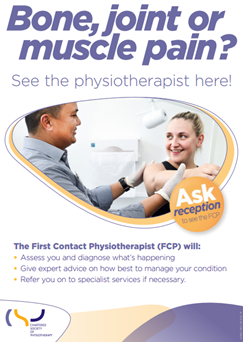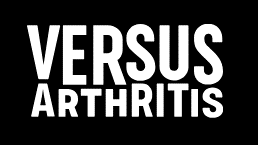Living Well Information
Staying Active
Staying active is key to maintaining your health and independence as you get older. Regular movement can improve your strength, balance, and overall well-being.
You can find the details of your local exercise classes by clicking here.
Falls
If you have experienced a fall, or are concerned about falling, local help and support are available.
Become Fall-Proof
Fall-proof can improve your strength and balance, help to maintain your independence, and keep you out and about doing the everyday things you love to do.
Visit We Can Move – www.wecanmove.net – and download your easy-to-use strength and balance plan, which includes:
- Your “how are you doing now” self-check.
- Six simple exercises you can do alongside other activity, to keep you feeling younger and stronger.
- A progress chart to fill in, that you might want to share with friends and boast about, as you progress?
This programme was developed in conjunction with NHS Gloucestershire If you have had 2 or more falls in the last six months, you can self-refer to the Gloucestershire Falls Service. This Service aims to reduce the number of people falling or who are at risk of falling through effective falls prevention information, education, assessment and intervention.
They have a team of clinical specialist physiotherapists who provide specialist falls assessment with a focus on mobility, physical activity, balance and strength. This will take place as an outpatient appointment.
Age UK have produced a handy guide with lots of information on what to do if you are worried about falling, with useful advice on how to stay active, how to look after your health, and what you can do around the home to reduce your risk of falling.

You can download a copy of the Age UK Staying Steady booklet here.
Age UK Gloucestershire offer advice and support for older people, their families and carers. Visit their website at
www.ageuk.org.uk/gloucestershire for further information. You can also sign up for their free Age Better e-Bulletin which is packed full of useful information, advice and ways to get involved each month so you and your loved ones can live your best later life!
Physiotherapy is a treatment that can ease pain and improve movement if you have an injury, illness or disability. It uses exercise, massage and other techniques.
Physiotherapy is used to treat a wide range of problems, including bone, joint and muscle issues, heart and circulation problems and can help with problems moving after a stroke. Physiotherapy can also help with breathing difficulties caused by conditions such as asthma and chronic COPD, or problems during and after pregnancy such as pelvic pain or incontinence. Physiotherapy is also often used to help improve movement, strength, and stamina after surgery.
You can find out more about Physiotherapy by visiting the NHS Website at https://www.nhs.uk/conditions/physiotherapy, or for more detailed information on how Physiotherapy can help specific conditions visit the Chartered Society of Physiotherapy website at https://www.csp.org.uk/conditions.
Did you know we have a First Contact Physiotherapist (FCP) working with us here at the Surgery? If you have any of the following concerns, you may be able to book an appointment directly with our FCP here at the Surgery. You won’t need to see the doctor first.
- Soft tissue injuries, sprains, strains or sports injuries
- Arthritis in any joint
- Possible problems with muscles, ligaments, tendons or bone, eg, tennis elbow, carpal tunnel syndrome, ankle sprains
- Spinal pain including lower back pain, mid-back pain and neck pain
- Spinal-related pain in arms or legs, including pins and needles or numbness
- Changes in walking
- Post-orthopaedic surgery

You will need to be over 18 years of age to see our FCP. Please contact Reception for further information and to book your appointment.
Living with arthritis can be challenging, but there are many things you can do to help you live a fulfilling life.
The Versus Arthritis website at https://versusarthritis.org contains a wealth of information about arthritis, whether you have just been diagnosed with arthritis or are looking for help and advice on how to manage your symptoms. You can also contact the Versus Arthritis helpline on 0800 5200 520 for further advice and support tailored to you.
